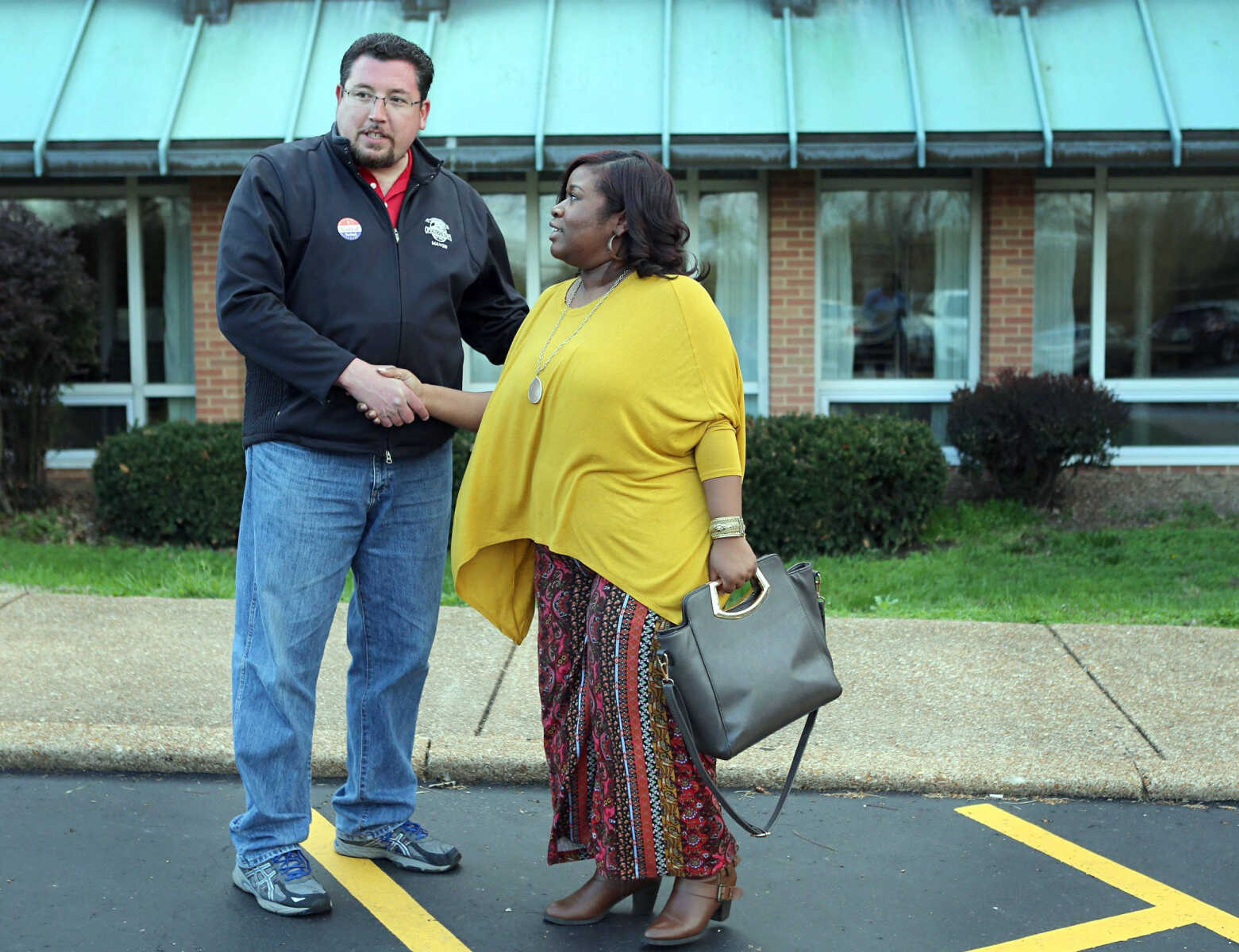Ferguson mayor who handled Brown shooting fallout re-elected
FERGUSON, Mo. -- Ferguson, Missouri's top elected official in the tumultuous 32 months since the fatal police shooting of Michael Brown won another three-year term Tuesday. James Knowles III, the mayor who was the public face of Ferguson after Brown's death in August 2014, held off a challenge from city Councilwoman Ella Jones, who was seeking to become the St. ...
FERGUSON, Mo. -- Ferguson, Missouri's top elected official in the tumultuous 32 months since the fatal police shooting of Michael Brown won another three-year term Tuesday.
James Knowles III, the mayor who was the public face of Ferguson after Brown's death in August 2014, held off a challenge from city Councilwoman Ella Jones, who was seeking to become the St. Louis suburb's first-ever black mayor. Knowles won with 56 percent of the vote to Jones' 44 percent. It will be Knowles' final term in office, because of term limits.
Ferguson voters also approved a ballot measure adding strict police body-camera requirements to the city charter. Officers already use cameras, but the new policy will require them to be on virtually all the time and seeks to make footage more accessible to the public.
Knowles, 37 and a lifelong Ferguson resident, was first elected as a councilman at age 25, and was just 31 when he was elected mayor. Jones, 62, a retired Mary Kay executive, was elected to the council in 2015, her first elected position.
Ferguson was thrust into the national consciousness after white police officer Darren Wilson fatally shot Brown on Aug. 9, 2014. The shooting of the unarmed, black 18-year-old led to months of sometimes violent protests and was a catalyst for the "Black Lives Matter" movement. Wilson was cleared of wrongdoing and resigned in November 2014.
But the investigation led to a U.S. Justice Department lawsuit over racially-biased police and court practices. A settlement calls for significant changes in operations -- sensitivity training for officers, adoption of community policing techniques, court reforms, and other measures.
The process is expected to cost more than $2 million and could take years. However, Attorney General Jeff Sessions announced Monday he'll review the effectiveness of existing and proposed consent decrees, including Ferguson's.
Knowles told The Associated Press he has had no contact with anyone at the Department of Justice.
"Nobody's talked to us," Knowles said. "We're not asking to have it changed."
Knowles said Ferguson has "voluntarily made a tremendous amount of reforms in our police department. We're not going back on those reforms."
Gary Kemp, a 68-year-old retiree, said he voted for Knowles because he's been a strong leader in the toughest of circumstances.
"He's led us through some difficult times," Kemp said. "We have faith that he's totally invested in Ferguson and he'll lead us through these difficult hours."
Ferguson officers have used body cameras since a few weeks after Brown was shot, when two companies donated cameras. But critics cite flaws, including too many cases when the cameras aren't on, limited public access to the footage, and a policy that allows officers to review footage before filing reports.
The ballot measure requires officers to have the cameras on virtually all the time, forces the city to maintain body camera video for at least two years, and makes footage from public places widely available. There is no estimate of the cost of the changes, Knowles said, but both mayoral candidates supported the measure.
Connect with the Southeast Missourian Newsroom:
For corrections to this story or other insights for the editor, click here. To submit a letter to the editor, click here. To learn about the Southeast Missourian’s AI Policy, click here.










